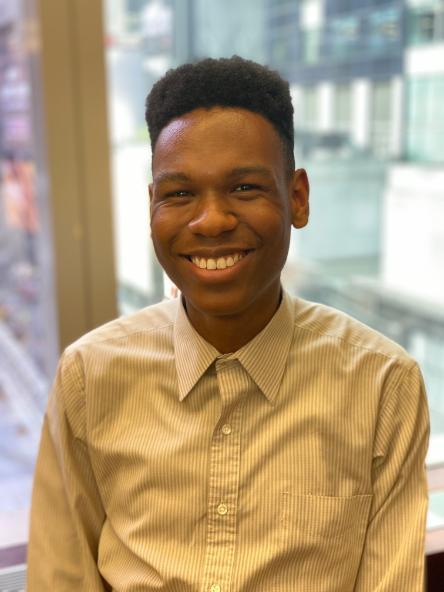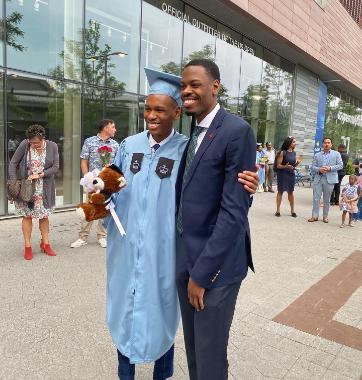How did you first become interested in comparative and international education?
During my undergraduate studies, I studied History and Africana Studies, which provided me with access to a globalized curriculum. During my junior year, I studied abroad for six months in South Africa and this deepened my exposure to the field of international education. I thus, came into Teachers College’s program with an interest in increasing students’ access to international exchange opportunities.
What were the most challenging and rewarding parts of your time at TC?
My TC experience coincided with the onset of the COVID-19 pandemic (Fall 2020), and I found it challenging to maintain connections to the department, my fellow classmates and the wider graduate school. Although the IED department and TC graduate school did a great job at maintaining connectivity and interaction amongst students, at points it was difficult to find spaces for us all to be in “the same place at the same time.”
Despite these challenges, it was rewarding to see how TC and the wider field of comparative and international education adapted. I found it great to have the option of having in-person, hybrid and/or remote options, and it prompted me to more intentionally reach out for support and guidance; and build connections in new ways.
How did your experience at TC prepare you for your career?
I chose TC because of the IED program’s focus on research and evaluation. It thus, served as the perfect mix professionally (international and comparative education) and personally, by allowing me to deepen my exposure to qualitative and quantitative approaches to research. These research methodology classes also prepared me well for my analyst role at Abt, which I discuss a bit more below.
Can you share about your experience working at Abt Associates? In what ways has your time with Abt Associates broadened or deepened your understanding of comparative and international education?
I started at Abt Associates about a month ago on the housing and capacity building (HAB) team, under the Social and Economic Policy (SEP) Division. Although fairly new, it has been a privilege to focus on newer topics around affordable housing and poverty alleviation. In many ways, safe, long-term housing is the foundation for many education and related (health, economic development, international development) fields.
My time so far prompted me to look for intersections between education and housing. I am reminded of the work of organizations such as Habitat for Humanity International or that being done at Columbia Climate School around FEMA Economic and Housing Disaster Recovery Training. It has thus been a time of immense learning and growth, as I continue to find ways to deepen my exposure and expertise across these fields.
What advice would you give to our current and prospective students?
I will offer two pieces of advice:
i. The first was given to me even before I was a student at TC. It came from the
department’s tips for students page. I will thus echo the words of previous alumni in saying to take courses to build new skills you find of interest, think early about your integrative project (IP), and reach out to me, current and former students, and the wider TC network- we’re here to support in more ways than one.
ii. The second will be from me: I would tell myself to be open to different opportunities, even if they seem unrelated, you’re uncertain about the outcome, or you find yourself doubting how you’ll make sense of these experiences. These will be valuable learning opportunities that provide you with experiences to augment your coursework.
Please don’t hesitate to reach out to discuss your experiences and times at TC and beyond at Pms2171@tc.columbia.edu

